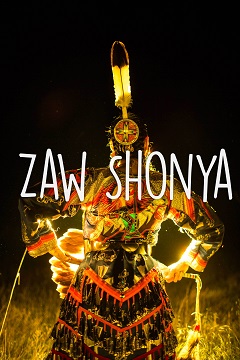 By the time this edition of the newspaper arrives, it should be Apte nibne gises – July. This literally means “halfway through summer months.”
By the time this edition of the newspaper arrives, it should be Apte nibne gises – July. This literally means “halfway through summer months.”
At the end of July the tribe will be hosting the annual Potawatomi Gathering. This is a gathering of the seven groups of Potawatomi in the U.S. and two from Canada. Here in the language department, it is our responsibility to host the annual Potawatomi Language Conference. The conference will run from Wednesday July 27 through Friday, July 29.
We have a great agenda this year and will have presentations from several of our Potawatomi speakers. Some will be telling stories, playing games in the language, doing immersion teaching, instructing on Potawatomi life styles, explaining the common feasts of the Anishnabek and conducting many other fun and language filled activities. We hope you will join us for the language conference and Gathering.
Also a reminder, if you want to learn Potawatomi, our ‘Beginner 1’ and ‘Beginner 2’ classes are available online with no cost to enroll. They are self-paced, meaning you can go as slowly or rapidly as you want to when learning. Go to language.potawatomi.org and click on the ‘Log In’ icon which will take you to a screen where you can create a new account. Give us a day to confirm your application and you’ll be good to go. Also, by the time this paper comes out we hope that our online children’s course will have been placed online at language.potawatomi.org/childrens-course. We hope you will make it a point this year to learn a little of our language so that we can pass it on into the future.
Shonya – money (shown yah)
Ngot mekwi – one dollar (literally “one beaver hide”)
Ngot yasben – one quarter (literally “one raccoon hide”) (ngoat yas bin)
Apte mekwi – half dollar (ap tuh muck wee)
Peyses – nickel (Pie sus)
Denses – dime (dan sus)
Meskede – It’s expensive. (mes skuh day)
Wenpengde – It’s cheap. (win pen guh day)
Zam meskede – It’s too expensive. (zahm)
Gégo gishpnedokén! – Don’t buy that! (gah go geesh puh nay doe can)
Wégni je ga gishpnedoyen? – What did you buy? (wek nee juh gah geesh puh nuh doe yin)
Shke dabyan ngi-gishpnedon. – I bought a new car. (shkuh dah bee yawn nuh gee geesh punay doen)
Ni je enadek I dabyan? – What color is the car? (nee juh eh nah duck ee dahbeeywan)
Skebgya – It’s green. (skeb geeyah)
Skebgya nmamomedagwendan. – Green is my favorite color. (nuh mah moe muh dog win dan)
Ni jetso ga negdek? – How much did it cost? (nee jet so gah nug dahk)
Noék osek gi negde. – It cost $7,000. (no ak oh suck gee nuguday)
Ni jetso wiye boset? – How far did someone drive it? (Literally “how many miles does it have?”) (nee jet so weeyay bo sit)
Ngot wak osek dbegen. – 100,000 miles. (ngoat walk osuck duh buh gin)
Shonya ne gde-ton? – Do you have money? (shown yah nay guday tone)
Basyak mteno. – I only have change. (boss yack mtino)
Nbokshka – I’m broke. (nuh boke shukah)
Gda-dbege ne? – Could you pay? (guhdah duhbaygay nay)
Ni jetso shonya nedwendemen? – How much money do you want? (nee jet so shownyah ned win duh min)
